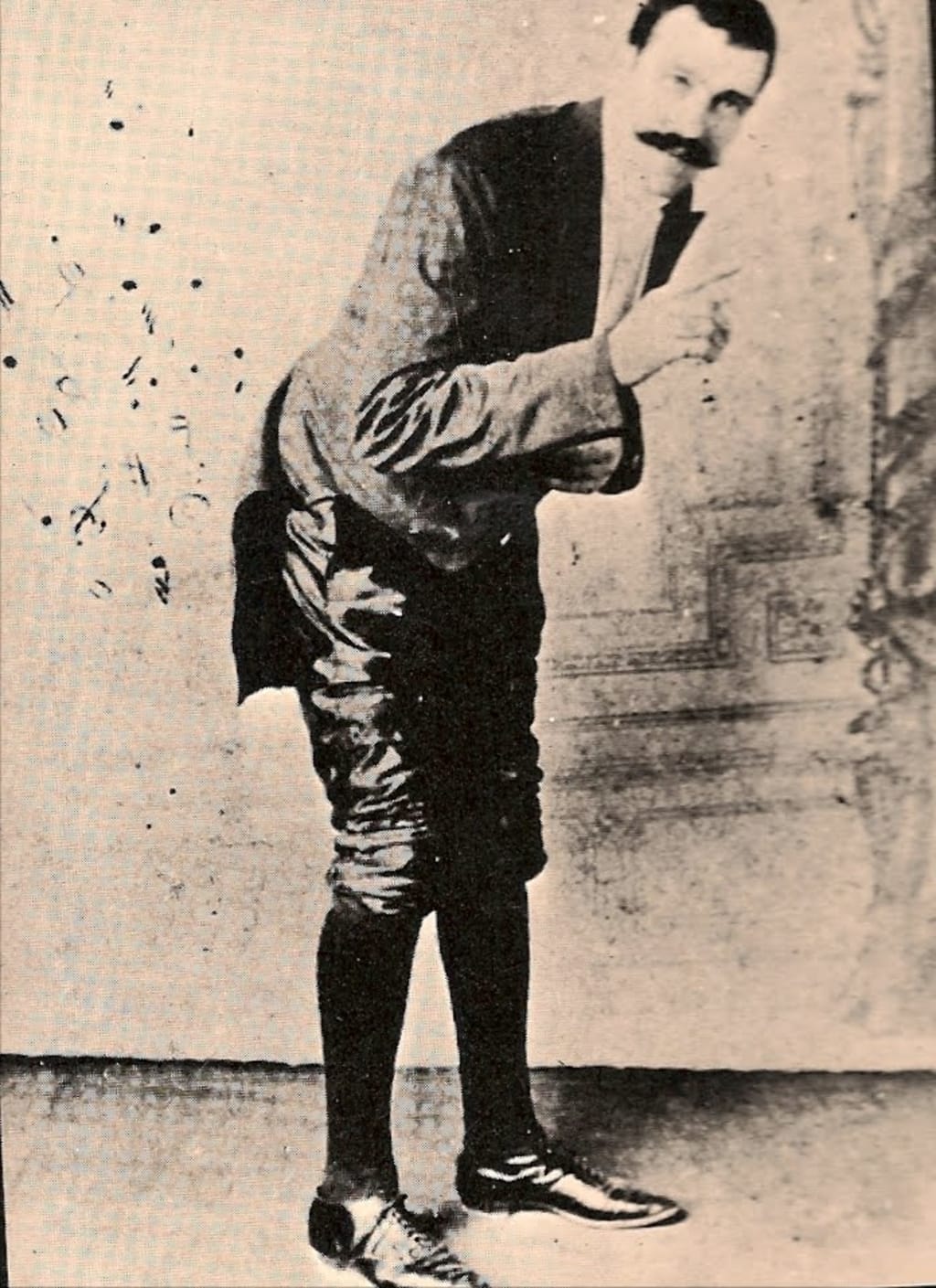Le Pétomane
In Praise of the “Flatulist” Who Did Not Flatulate

If you enjoy fart humor, I mean seriously enjoy all the hilarity of a good anal rip, then you have likely heard of Le Pétomane, the French “flatulist” (artistic farter) who was the most popular and highest paid performer at the Moulin Rouge in the early 1890’s.
Renowned for performance extravaganzas that catered to widely diverse audiences, the Moulin Rouge was the place to mingle and have uproarious fun in late nineteenth century Paris. La Belle Époque was a time when the well-to-do loved mingling with the lower classes – a beautiful era for all! Afternoon café-concerts and champagne cabarets at night offered a comfortable ambiance for labourers, aristocrats, artists and courtesans to enjoy themselves without reserve.
Some of the more notable Moulin Rouge patrons in those early years included King Leopold II of Belgium, Maurice Ravel, Pierre-Auguste Renoir and Sigmund Freud. Le Pétomane was the atmospheric charge who had these notables and corset-clad ladies passing out from laughing so hard. Fart humor, after all, dates as far back as medieval Irish Chieftains employing “braigetoirs” to fart on command for the amusement of their dinner guests and the proverb “every man likes the smell of his own farts” is attributed to Icelandic Vikings long before that.
Joseph Pujol was much more than a fart on cue comedian though; he farted songs! Pujol practiced and refined his craft for several years, as any respectable musician does, before auditioning for Charles Ziegler, co-founder of the Moulin Rouge. He was serious about his, ah, gift and had a polished act that audiences adored. His stage name, Le Pétomane, is a combination of two French words, “péter” (to fart) and “mane” (maniac). Farting maniac is certainly a titillating title - but he wasn’t really farting!
Flatulence occurs when there is a build up of excessive gas in the digestive system. Pujol wasn’t a gassy guy. In fact, he was meticulous about having enemas before every show to be sure his act had no offensive odor, but that was just a precaution. Pujol’s real talent was sucking air through his anus which he then expelled melodically with superior control of his abdominal and sphincter muscles. The air did not follow the same path as food entering the stomach and intestines, so it did not ferment and convert to gas. His eruptions had no odor; they were melodious imitation farts.
As is often the case with talent, young Joseph discovered his astonishing ability purely by accident and without comprehension when he was a boy at the beach. Swimming in the sea, he held his breath under water and almost immediately felt a cold sensation penetrating his derrière. Terrified, he ran back to the beach and, secluded from others, expelled a surprising amount of sea water from his rectum. He kept this a secret until years later when one drunken night he and his army pals were one-upping each other with tales of hidden talents. Naturally, after hearing Joseph’s story, his barracks buddies wanted to know if he could recreate his beach episode and, well, he discovered he could.
Sucking water through one’s anus and expelling it isn’t the most pleasant experience to do or watch so Joseph, encouraged by the enthusiasm for his boisterous ability, taught himself to inhale air through his backside and expel it with remarkable refinement instead. His technique involved bending over and plugging his mouth and nose which made it possible for him to inhale air into his stomach instead of his lungs. By contracting his diaphragm, he increased the space in his abdomen and could intake and store enough air to expel without interruption for 10 to 15 seconds. This technique was thoroughly refined by the time his service in the French army ended.
Pujol owned a Bakery in Marseilles where he would entertain his customers by imitating musical instruments that he pretended to play behind the counter. Imagine him bending over to place a nice fresh baguette into a bag, then handing it over while blowing a little riff with his body bugle. Customers enjoyed his pranks and Pujol enjoyed amusing them. He created an entire show featuring his unique ability and in 1887, at the age of thirty, debuted his act at a theatre in his hometown. His stage antics were wildly popular and led to him taking his show on the road to theatres across France before auditioning at the Moulin Rouge five years later.
La Pétomane’s act included comedic patter enhanced with sound effects – the high-pitched squeal of a bride on her wedding night, a trumpeting elephant, you get the idea – as well as gags like blowing out a candle with the air from his rump from an impressive distance and smoking a cigarette from both ends at the same time. Interspersed with this buffoonery was his artistry for tooting tunes with the Moulin Rouge orchestra. The defiant act of closing his performances with the French National Anthem was particularly hilarious and demonstrated his ability to enhance audience camaraderie with humor.
Joseph Pujol was a decent guy who liked to have fun. A two-year run at the Moulin Rouge ended abruptly when he was given a hefty fine by the club for breach of contract. After helping a struggling fellow baker attract customers to his stall in a Paris marketplace, Pujol was informed that Le Pétomane’s performances were exclusive to the Moulin Rouge. Enraged, Pujol quit. “You can’t own the wind”, he declared and took his act on the road, touring across Europe and North Africa before building his own club, Le Théâtre Pompadour in Paris.
Pujol knew that the Le Pétomane act was bawdy, but he was serious about his performances and desire to entertain, something he developed a passion for as a young boy who enjoyed singing and dancing at family parties. He thought of himself as an impressionist and his new shows were a gentler vaudeville style than at the Moulin Rouge. Pujol even composed his own music which he punctuated with sound effects; one of his favorites was a song about a farm. He operated and performed at Le Théâtre Pompadour until the outbreak of World War I in 1914. Farts weren’t so funny anymore and bread was needed so he went home to his bakery in Marseilles and never returned to the stage. He died in 1945 at the ripe old age of 88.
Stories of Le Pétomane are legendary and have captured the hearts and imagination of biographers, film makers, and playwrights around the world. Mel Brooks paid homage to Pujol’s stage name in his 1974 film, Blazing Saddles with the character Governor William J. Le Petomane. An award-winning musical– The Fartiste, inspired by Pujol’s life, premiered at the New York International Fringe Festival in 2006. Fart humor, it seems, will never go out of fashion!
Whether Joseph Pujol intended to inspire such a legacy will never be known. His family did refuse several requests by doctors, curious to know the internal mechanics of how he was able to perform, to examine his body posthumously. As one of Pujol’s sons is said to have explained, “there are some things in this life which simply must be treated with reverence.”
Indeed.
About the Creator
L J Purves
Artistic spirit who teaches piano, composes, and enjoys writing.






Comments
There are no comments for this story
Be the first to respond and start the conversation.